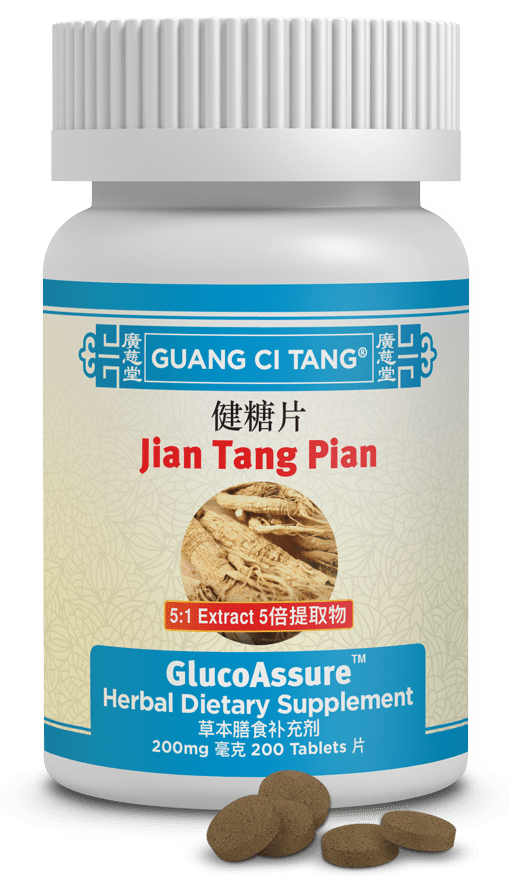Sugar in TCM: A Spoonful of Sugar Makes The Chinese Medicine Go Down

Sugar is like gravity. There’s no way to escape it; it’s too strong to resist. Food manufacturers know they’ve got us by the 睾丸, pronounced “gāo wán” and loosely translated in Spanish: cajones.
The sweet stuff is added to almost every product you see in the supermarket aisle: tomato sauce and ketchup, salad dressing, bread, and even pickles!
The overconsumption of added sugars has led to a metabolic disorder epidemic that even the Pentagon famously dubbed a national security threat.
Even though the industrial food lobby doesn’t need any more free publicity in its corner, sugar needn’t be completely demonized. In fact, if we go back roughly 1400 years, sugar emerges as a medicinal ingredient in TCM.
A Very Brief History of Sugar in China
If you’re struggling to curb your appetite for sugar and manage your blood sugar levels, you can blame not only industrial food manufacturers but also India. There, on the subcontinent, shortly after the first century CE, sugar began being produced from sugarcane plants. The cultivation of sugar cane in India goes back even further to as early as 1500 BCE. When we think of the sweet white stuff in packets that sweeten our coffee and tea, it’s Indian ingenuity we have to thank — or curse, depending on your point of view. The refining of cane juice into granulated crystals was developed here, and the word “sugar” itself is thought to be derived from the classical language of India, Sanskrit. In Sanskrit, “śarkarā” roughly means “ground, candied and gravel-like.”
Some people consider globalization bad for American interests. And they’d be right that globalization has been bad for the average American’s teeth and waistline and metabolic markers. However, international trade routes are what brought sugar to China. It was itinerant Buddhist monks who, in the seventh century, introduced sugar crystallization processing methods to China during the Tang Dynasty.
Sugar’s Role in Ancient China and TCM
It didn’t take long for ancient Chinese to recognize how incredible sugar tastes. However, perhaps because moderation is a value in Confucianism, Daoism (Taoism), and TCM, sugar was initially used sparingly. Like a sprig of rosemary or thyme, it was added merely to enhance flavors — not to dominate a dish. Eventually, Chinese physicians recognized sugar not only as a luxurious, occasional treat but as a potent ingredient to harmonize herbal remedies and soothe digestive ailments. Sugar, then, symbolized both indulgence and healing. Unfortunately, in the West, overindulgence has taken center stage, leading to sickness and chronic disease.
The Physiological Action of Sugar in TCM
Ancient Chinese medicine practitioners would incorporate sugar to moderate the potency of certain herbs. By adding sugar, the spoonful of medicine was more palatable and easier to digest. (The Sherman brothers, who wrote the lyrics to “A Spoonful of Sugar” in the 1964 film, “Mary Poppins,” have TCM to thank for inspiration!)
Sugar possesses a schizophrenic Yin/Yang nature. It can display characteristics of each complementary Qi quality depending on how it’s used. For instance, sugar’s warming qualities (Yang) may strengthen the Stomach and Spleen organs, aiding in the digestion and transformation of food into vital energy, respectively. Another Yang quality of sugar is that it harmonizes the effects of formulas, alleviates gastrointestinal discomfort, and supports the body’s natural healing processes.
But then we come back to sugar’s devilish side. When consumed in excess or highly concentrated forms like soda and fruit juice, sugar is Yin. An excess of cooling, Yin energy promotes swelling, inflammation and dampness. This can cause Spleen Qi deficiency and phlegm.
In moderation, sugar can help the Liver channel remain in balance. However, too much can lead to Liver Qi stagnation. Unsurprisingly, we see this pattern repeat with other organ systems. Natural sugars in moderation can support Kidney function by aiding in fluid metabolism. Overconsumption may weaken the Kidneys over time.
Sugar For The Heart
Natural sugars from fruit, unrefined grains and vegetables support Heart function by providing energy. However, excessive sugar can contribute to Heart Yin deficiency, leading to excess heat patterns. When Spleen is balanced, it generates Blood. Natural sugars can help this TCM process. But when consumed in excess, Blood stagnation and imbalance result, contributing to conditions like diabetes. In TCM, diabetes is a type of Heat in the Blood. Heart heat also is a pattern associated with sleeplessness.
Sugar, of course, can benefit our Shen (spirit). When we bite into a handful of berries, the natural sweetness pleases more than our taste buds; nature’s candy pleases us to the core of our being. Then again, too much of the sweet stuff may trigger anxiety and other forms of emotional instability.
Honey, Milk & Tea in TCM
Some traditional TCM herbs contain sugar. But it’s not the added, refined sugars that are commonplace in Western food and drinks. Rather, these formulas are sweetened with honey. A popular honey-processed herb is licorice root. When honey is added to licorice root (Gan Cao), it is called Zhi Gan Cao. As in Western home remedies, honey is used for soothing sore throats. In TCM, honey-processed licorice root clears heat from the body. In general, honey in TCM herbs and formulas enhances the tonifying properties and makes the formula gentler on the digestive system.
A new medicinal trend is emerging in China that sweetens the notorious bitterness of many raw, bulk Chinese herbs. In Southwest China, the Xinhua news agency reports that TCM doctors are appealing to a younger audience by infusing TCM herbs into milk tea, a popular beverage that’s exactly how it sounds: a combination of milk and tea. Less sweet than regular milk tea, this innovative medicinal milk tea indeed makes the medicine go down much easier.
And if you like milk tea, there’s an even easier way to add Chinese herbs to it. Simply add a small scoop of single herb extract granules to the milk tea and stir for a few seconds and voila! Your semi-sweet Chinese herbal milk tea is ready. ActiveHerb.com’s list of over 200 extract granules includes several adaptogenic herbs such as reishi, rhodiola, and astragalus.
Finally, if you need help managing blood sugar, learn about our formula, GlucoAssure.
Enjoy the sweet stuff, in moderation.
Read More About Sugar On ActiveHerb.com:







